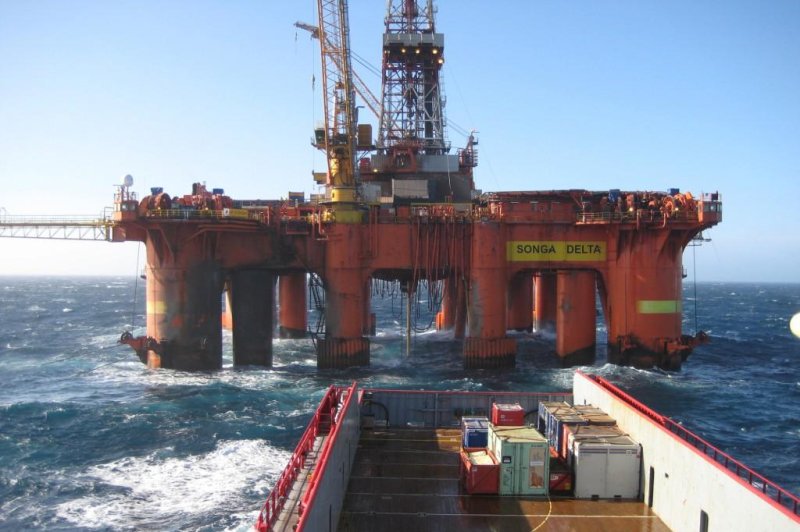BP and Norwegian counterpart Det norske team up to create a "new Norwegian super-independent" oil and natural gas producer. Photo courtesy of Det norske.
OSLO, Norway, June 10 (UPI) -- British energy company BP said it was teaming up with a Norwegian counterpart to create what's designed to be one of the biggest regional producers.
The Norwegian energy sector is dominated by Statoil, one of the largest suppliers of oil and natural gas to the region. The Norwegian government controls about two-thirds of the shares in Statoil.
BP and Norwegian energy company Det norske said Friday they've teamed up to create Aker BP, an independent company they said will be the largest Norwegian independent oil and gas producer. Norwegian oil field services company Aker, which owns 49.9 percent of Det norske, is included in the arrangement.
BP Chief Executive Bob Dudley said in a statement the merger exposes more opportunity on the Norwegian Continental Shelf.
"This innovative deal demonstrates how we can adapt our business model with strong and talented partners to remain competitive and grow where we see long-term benefit for our shareholders," he said in a statement.
Wading into the waters of Norway gives BP a foothold in the giant Johan Sverdrup oil field, where Det norske has a minority interest.
The first phase of operations at Johan Sverdrup should yield up to 380,000 barrels of oil per day, roughly half of the expected peak production rate. Once in full swing, the field, the fifth largest discovered off the Norwegian coast, should account for up to 25 percent of all Norwegian petroleum production.
The Norwegian Petroleum Directorate, the nation's energy regulator, said oil production in April, the last full month for which data are available, averaged 1.63 million barrels per day, about 3 percent higher than the agency had expected. The government estimates there are roughly 18 billion barrels of oil equivalent yet to be discovered in Norwegian waters. Half of that is in the Barents Sea, with the rest distributed in the North and Norwegian Seas.
The companies behind the merger said the combined "new Norwegian super-independent" company could build a production capacity of more than 250,000 barrels of oil equivalent per day by the early part of the next decade.
The deal still needs regulatory approval and support from the shareholders of Det norske. Employees working for BP's regional subsidiary would move to Aker BP if the deal closes, which BP said is expected by the end of 2016.















